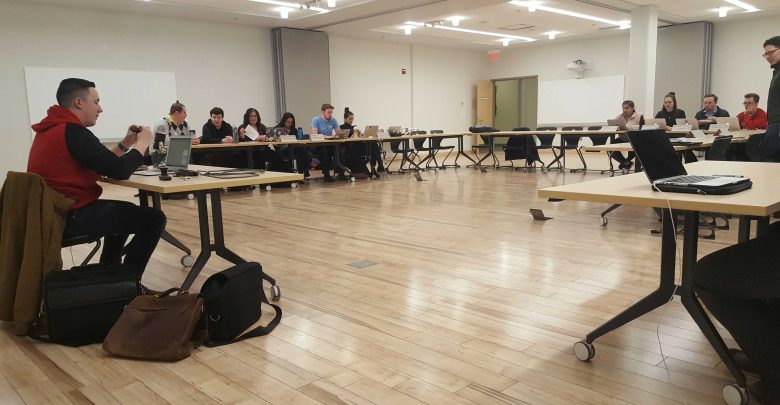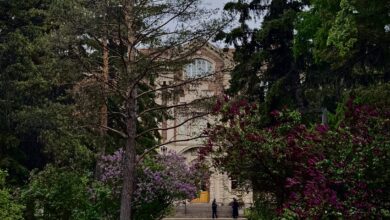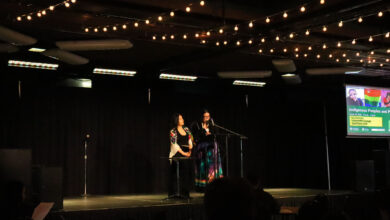Student spaces levy referendum fails in Students’ Council
 Nathan Fung
Nathan FungAfter two special meetings of Students’ Council, the student spaces levy will not be going to a referendum in March as a majority of councillors voted against it
At a special meeting held at the Students’ Union Building, councillors voted to not proceed with the referendum on the fee, which would cost students $18 in the 2019-20 academic year, doubling annually until it reaches $54 by 2021-22, and would be used to renew spaces around campus that are not funded by government sources.
After two and a half hours discussing the levy, a vote on the motion failed with nine votes in favour and 17 against. All five members of the Students’ Union executive voted in favour of approving the referendum question
“We are voting on whether students should have a choice in this decision, not on whether we vote yes or no personally at the referendum, so I’m voting yes to allow students a choice,” said SU vice-president (external) Adam Brown.
However, several councillors said they voted no because they disapproved of the governance process surrounding the levy, saying that council had not done its due diligence in weighing the facts. As the question needed to be approved within 30 days before the election on March 6 and 7, council had to schedule two special meetings in order to vote on it in time.
“This rushed and chaotic governance process in council has hurt everyone’s trust in governance and in this institution,” said arts councillor Rowan Ley.
Other councillors also felt that a written agreement supporting what the levy would do should’ve been aquired by the Students’ Union from the university before, and not after, councillors voted to approve the referendum question. Prior to the meeting, Students’ Union vice-president (operations and finance) Emma Ripka said they’d only had a verbal agreement to the levy from the university.
“There’s no written agreement between the Students’ Union and the university [on this] and as history would tell us, oral agreements are not enough,” said native studies councillor Nathan Sunday.
At the beginning of the meeting, Ripka presented a new version of the referendum question for councillors to consider, as several councillors thought the original wording was confusing.
On February 1, a report was released detailing the consultations done around the levy between the Students’ Union and faculty associations. However, several councillors questioned why the document was released to them less than 24 hours before the meeting.
“I found it really hard to read 68 pages [in less than 24 hours.] Like, professors won’t even drop 68 on someone to analyze fully,” said education councillor Samantha Tse. “I believe the report, having been released 24 hours before, wasn’t considerate.”
In response, Ripka said she “apologizes that [Tse] felt that way,” and that updates had been regularly provided to council since September.
Additionally, a judicial challenge from the Discipline, Interpretation, and Enforcement (DIE) Board has been submitted regarding the legality of the proceedings surrounding the levy. No hearing has been scheduled at this time.
While the levy would not be up for consideration during this year’s Students’ Union elections, several councillors said the levy could come up for consideration next year, and that council can use the additonal time to improve the proposal.





It would be interesting to see what the student body would have voted. I wonder how polling went…